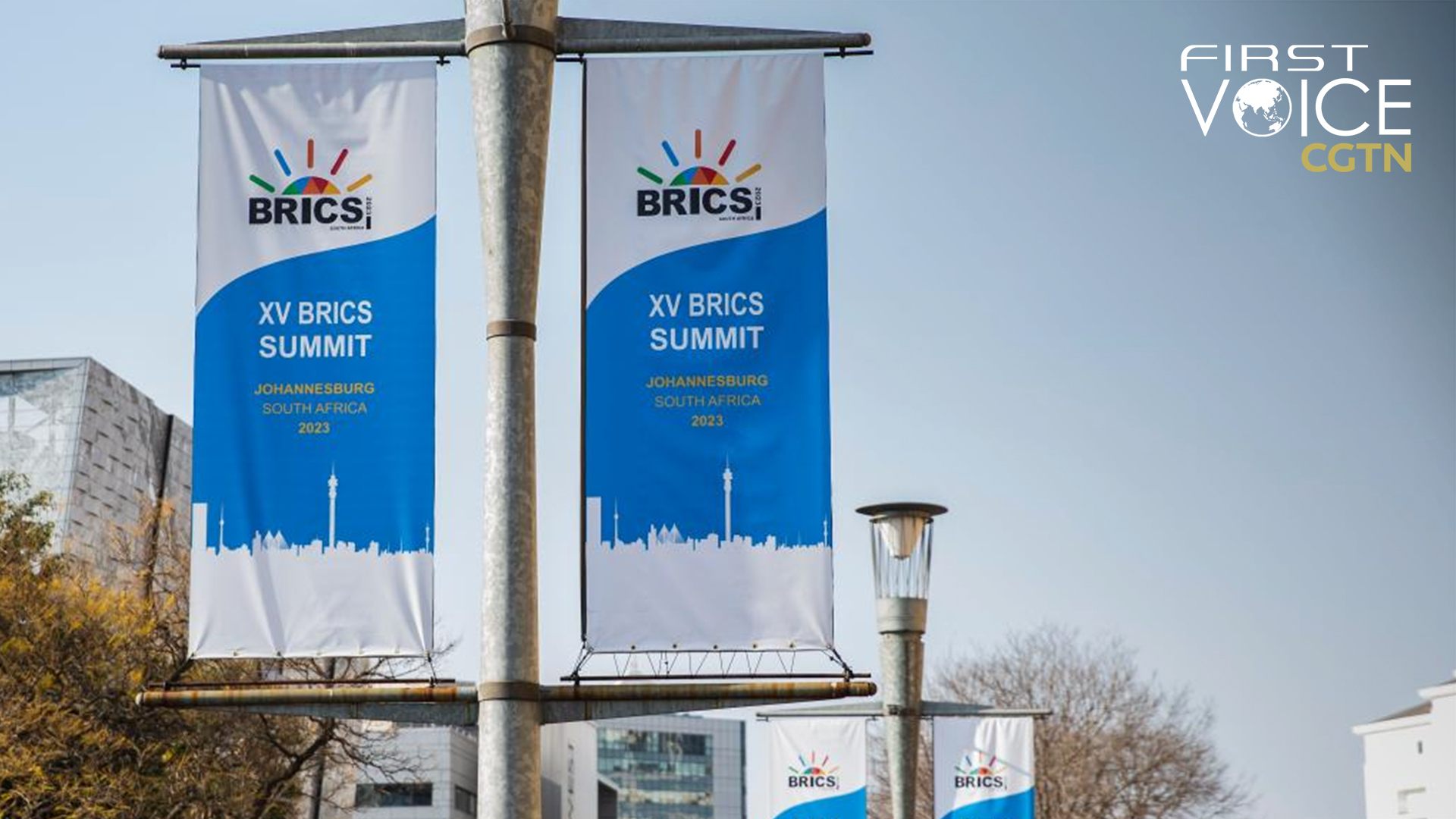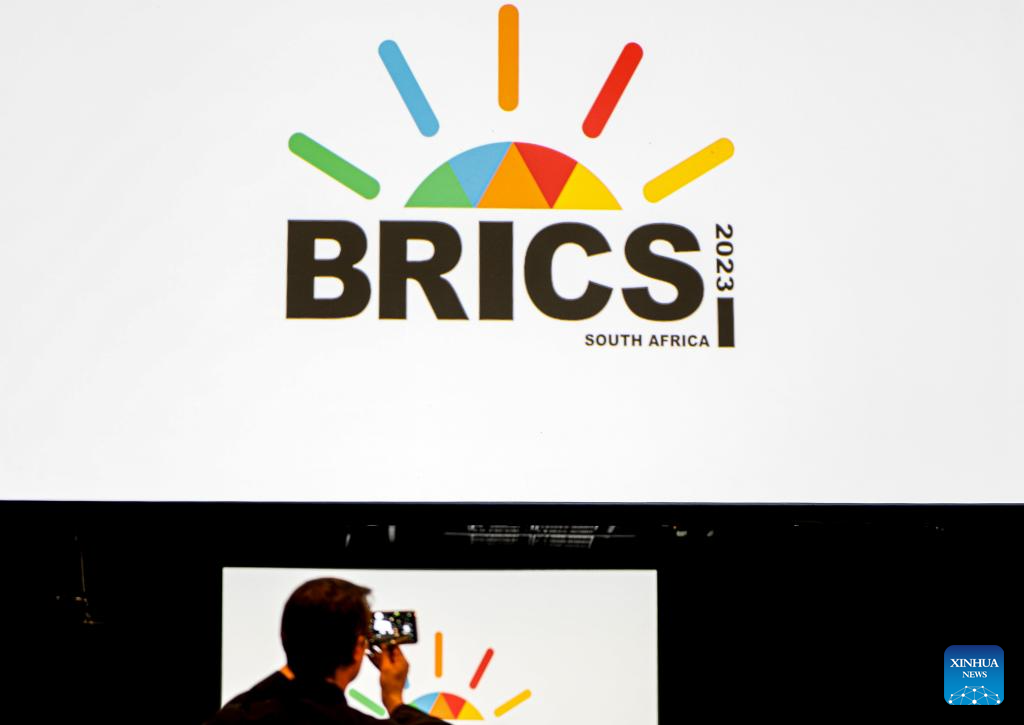
Editor's note: CGTN's First Voice provides instant commentary on breaking stories. The column clarifies emerging issues and better defines the news agenda, offering a Chinese perspective on the latest global events.
Development is an inalienable right of all countries, not a privilege of a few countries, said Chinese President Xi Jinping on August 23 when addressing the 15th BRICS Summit.
The New York Times described this year's BRICS summit as garnering "a level of international interest rarely seen since the group was first formed 14 years ago." And it is indeed worth the attention. As the world seems unable to shake off the impact of major power competition and geopolitical conflicts, the pursuit of development and prosperity seems to have become more of a campaign slogan than an actual governance objective.
Since its founding, BRICS has been focused primarily on the development of all its member states. Together, they have a combined population of over 3.2 billion people, accounting for around 40 percent of the global population. They represent a quarter of the global GDP and 16 percent of global trade.
The New Development Bank established by BRICS nations mobilizes resources to support infrastructure and sustainable development projects. Since its establishment in 2015, the NDB has approved nearly one hundred projects with the total value of $33.2 billion. And to promote common development, the NDB is also planning on providing $30 billion worth of financial support from 2022 to 2026 targeting the needs of developing countries.
BRICS expansion has long been talked about. President Xi called for the speedy expansion of BRICS during his remarks. Mokhtar Ghobashy, deputy chairman of the Cairo-based Arab Center for Political and Strategic Studies, said in an interview that "China's role in boosting BRICS is essential in light of the several initiatives proposed by Beijing in the past few years, including the Belt and Road, Global Development, and Global Security."

A man takes photos at the media center of the 15th BRICS Summit in Johannesburg, South Africa, Aug. 21, 2023. /Xinhua
A man takes photos at the media center of the 15th BRICS Summit in Johannesburg, South Africa, Aug. 21, 2023. /Xinhua
More than 40 countries including Iran, Saudi Arabia, Argentina and Bangladesh have signaled their intentions to join the organization. And, as Ghobashy pointed out, most of the countries requesting to join BRICS are economic and political powers with regional influence. It is the ability to provide "unconditional development opportunities for countries" that attract countries to BRICS, Ghobashy said.
Western or U.S.-led organizations tend to be exclusive clubs of countries with clearly defined boundaries. Take the G7, for example. Many articles and pundits like to describe BRICS as the counterpart to the G7 which seeks to challenge its dominance. However, the two institutions are fundamentally different in nature.
The G7, led by the U.S.'s financial, political and military power, serves the interests of seven countries and seven countries alone. And with the U.S. as the overwhelmingly dominating power with forged security pacts with other members, it has been turned into an instrument for the hegemon's will and vessel through which fake an "international consensus" is formed.
BRICS, on the other hand, is open to all countries that wish to join and seek common development. Regardless of the ideological and political differences between its member states, BRICS has evolved into a platform where issues can be discussed and negotiated between members that treat each other as equals.
And it's a platform not just open for developing nations. France, earlier in the year, reportedly expressed interest to participate in this year's BRICS summit. French Foreign Minister Catherine Colonna said she had informed the South Africans of France's interest to attend as an observer and even shared French President Emmanuel Macron's availability.
As President Xi said, it is not acceptable to dress up one's domestic rules and regulations as international norms. The growing attractiveness of BRICS lies in its openness to differences and dialogue and insistence on being a platform that respects all participants and treats them on equal terms. No single country dominates the organization and no single country can impose its will. It's the collective agreement between all member states that propel the institution forward. And with the potential enlargement in sight, BRICS is set to take greater importance on the global stage.
(If you want to contribute and have specific expertise, please contact us at opinions@cgtn.com. Follow @thouse_opinions on Twitter to discover the latest commentaries in the CGTN Opinion Section.)